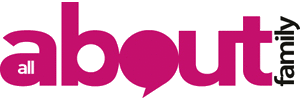By Emma Ing, Ofsted Director for the East Midlands, @EmmaIngHMI
The school year is almost over and pupils in more than 250 Northamptonshire primary schools will soon be enjoying the summer fun.
But in just a few months’ time, children who are now three or four years of age will begin their first primary school experience.
In England, we start formal school relatively early compared to some other countries. But the first year of primary school is really an extension of early education. The school curriculum doesn’t start until a child’s second year of primary.
In Northamptonshire, 100% of young children benefit from a free nursery place, which helps them get off to a good start. And chances are, the majority are attending a good or outstanding nursery. In this county, 94% are judged to be good at least.
These young children generally do well when they progress to Reception. In fact, the proportion of Northamptonshire children who have reached a good level of development by the time they start primary school is improving at a faster rate than it is nationally.
Our inspectors saw an example of this recently when they visited Headlands Primary School in Northampton. At this good school, young children make effective transitions from nursery to Reception, and from Reception to Year 1.
At Headlands, teachers visit children at home before they start school, and there are opportunities for children and parents to visit the school during the summer term.
Of course, there are challenges for schools in Northamptonshire. But there are also positive signs of progress.
Just recently one of my senior inspectors, Deirdre Duignan, spoke at the Northampton Town Education Challenge, where schools in the county came together to find solutions to the common problems they face. We are always happy to take part in these discussions. After all, no one school or organisation has all the answers!
So, how can parents help young children make these transitions as the summer holiday begins? The simple answer is reading. Young children need the opportunity to see words as they hear them.
Extending a child’s knowledge of words doesn’t only come from reading books, but from small daily things, such as pointing to words that appear on the side of a bus or the different signage and labels in a supermarket. And, of course, talk to them. Children develop their vocabulary through talking, being told stories, and hearing words used.
All these activities will help young children progress to their next stage of learning.
